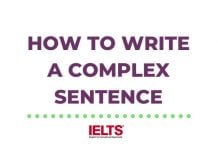
The improvement in IELTS writing section is difficult to accomplish. To improve IELTS writing band score, one requires adapting the following things:
- Forming complex sentence structures
- Using good vocabulary
- Avoiding grammatical errors
Here’s the Ultimate 10-Step Strategy for Moving your IELTS Writing from Band 6.5 to Band 7:
1Practice regularly
It is virtually impossible to accomplish IELTS band 7 or 8 writing skills in just a few days. You need to practice daily. Practicing daily does not necessarily include writing a lot of passages in one day. Your intensive practicing schedule may include just writing introductions to a couple of passages only. Brainstorm the topics for task 2 and the letter or analyze the data for task 1 and write down some ideas that are connected. Look at the ideas and see which ones you can develop or write about well.
2Planning
Planning an outline of your ideas and the information to support them, making notes of the keywords and jotting down the vocabulary and sentence structures you wish to use, can make your task easier and better. Understand the requirements of the question. Once you understand the needs of the question, the next step is to collect relevant ideas about the topic. Brainstorm any related ideas and also of any vocabulary you know about this topic and make notes.
3Linking words and vocabulary
Note down some related vocabulary and linking words. Also think of specific phrases that you can use and write them against the paragraphs you want to include these in, this will make sure that while writing you don’t forget to use them. It is necessary to have a bank of linking words and vocabulary so that you can express your ideas in a well mannered way.
4Start your task
Steps 1 to 3 help you to create a relevant framework. Without these steps you will not have information or outline to create a good band 7/8 task. You can work on the parts individually. Don’t put time limits yet. Try out some introductions, some body paragraphs and some conclusions individually. Once you are able to do the individual parts, try to put the whole task together.
5Read it out loud
Go over your work to check for any silly mistakes. The best way is to read it out loud. Wherever there is a mistake you’ll stumble and that part will grab your attention and hence you can look for the errors there.
6Get someone to check it
After checking it yourself, let a teacher or any person with good English proficiency, check it. Ask them to point out any grammar, punctuation or spelling errors. Also ask them if there are convinced with your answer.
7Redo it
If there are too many mistakes, do the tasks again. Re-drafting is really helpful. You can also adapt ideas from model answers. Prefer model answers written by the teachers rather than those written by students. Get it checked again.
8Repeat
Repeat the whole process over and over again to get well-verse. This will help you to create your own template and soon you’ll observe that you’ll find what works best for you. You’ll be using similar sentence structures and linking words. This is beneficial in the sense that your tasks will become error free and you’ll be using sentences that you are absolutely sure about. Another thing that you’ll observe is that your time utilization has improved drastically.
9Get looked by an IELTS teacher
Don’t leave anything to fate. Look for both online or offline IELTS teacher to get your samples checked. Take their valuable feedback on not just the mistakes, but also on how to improvise them. Get each task checked before doing the next one. If you complete a couple of tasks together, there is a greater probability that both of the tasks will have similar mistakes.
10Book your IELTS test
If you’ve been following all the given set of instructions properly you must have now found your perfect strategy for getting your desired IELTS band. The intensive practice may have now resulted in almost error free tasks. Hence, it’s now right time to book your test.
GOOD LUCK!
Originally posted 2018-03-21 15:13:45.










